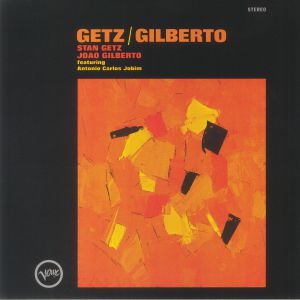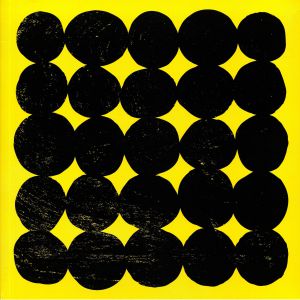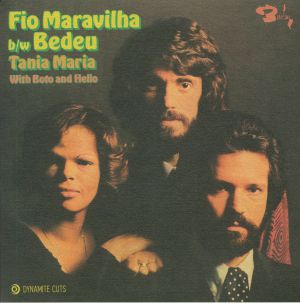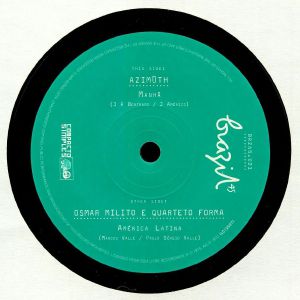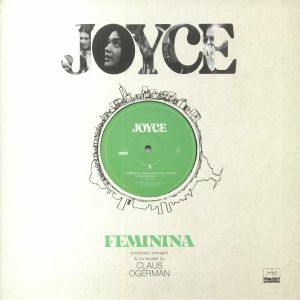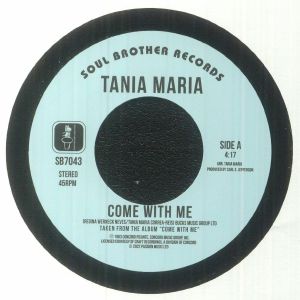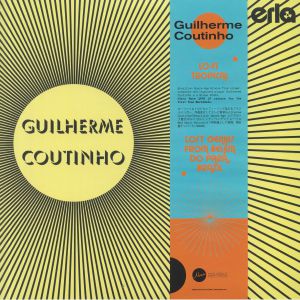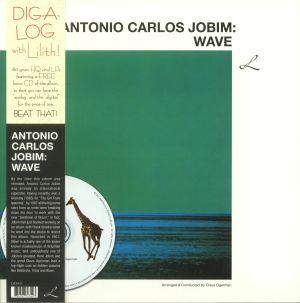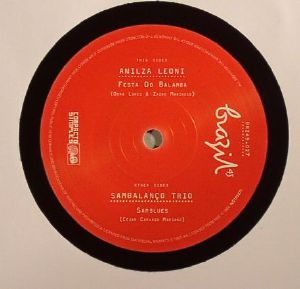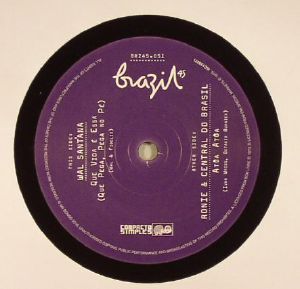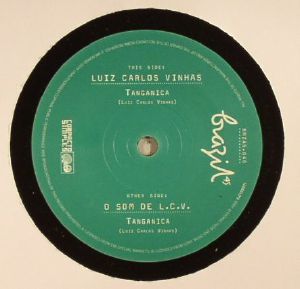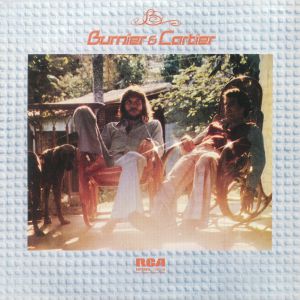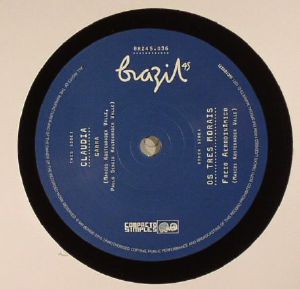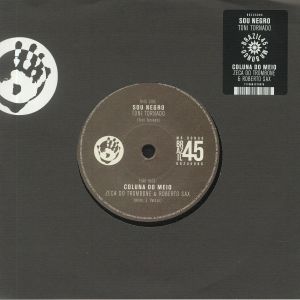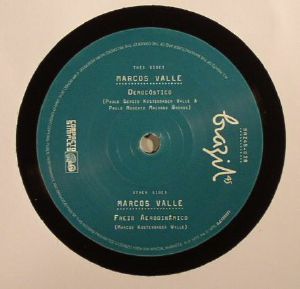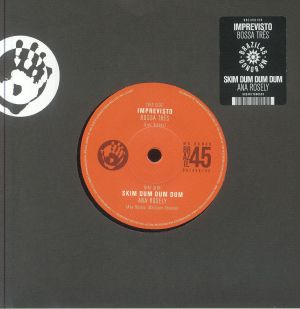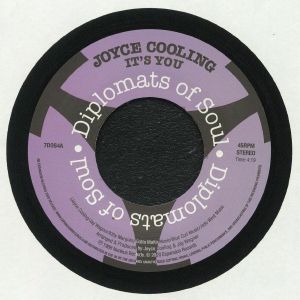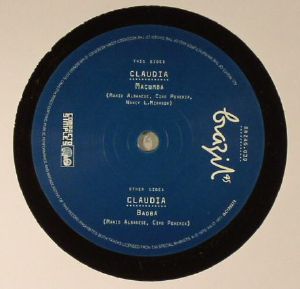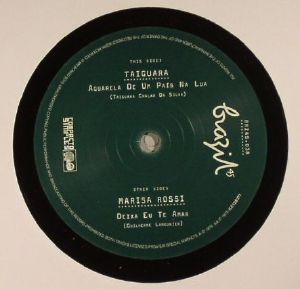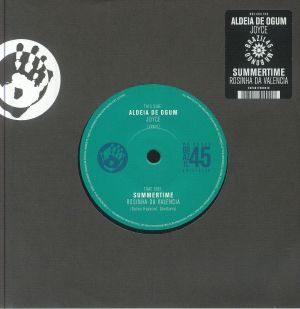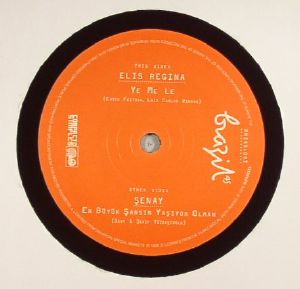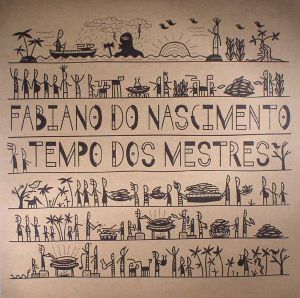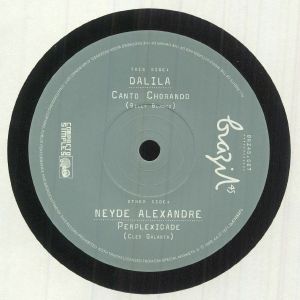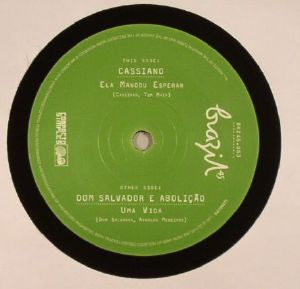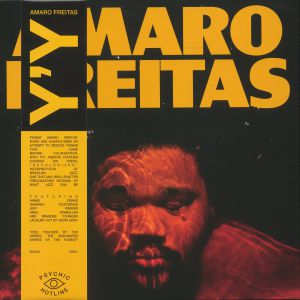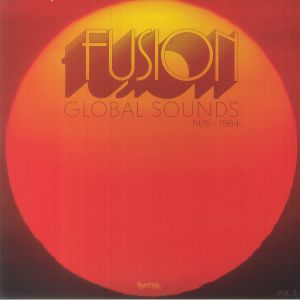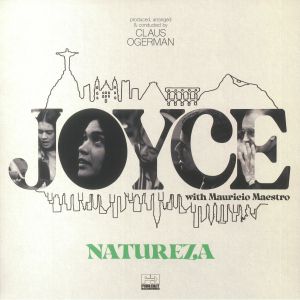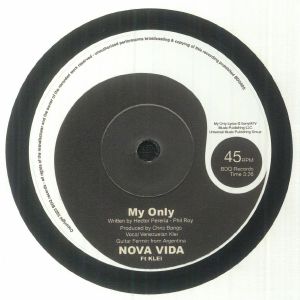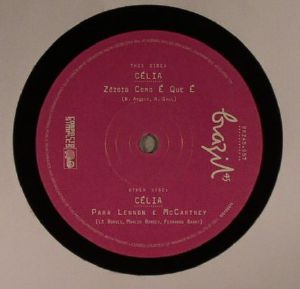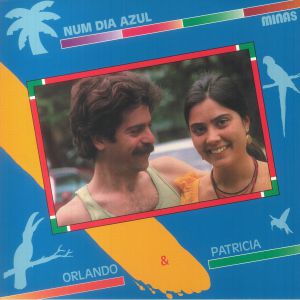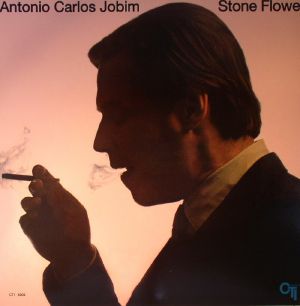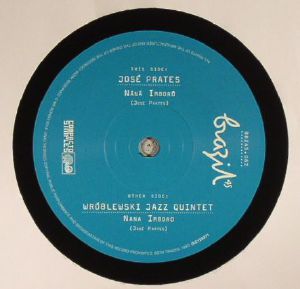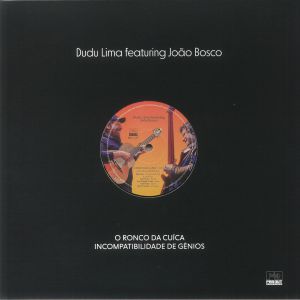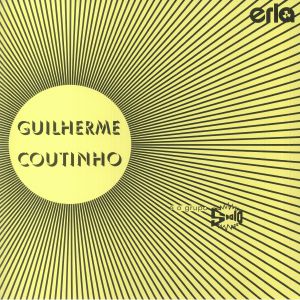Filter
Release Title
Price
Tags
Tags: Brazilian Jazz
Products tagged as Brazilian JazzPlayed by: Juno Recommends Jazz, Miles Away Recs
in stock $30.54
Review: The crate-diggers behind the Mr Bongo label can usually be relied upon to showcase some seriously good tunes old and new. That's certainly the case on this third volume in their occasional "Record Club" series of compilations. Spanning sunshine soul, obscure samba, spacey jazz-funk experimentation, wide-eyed underground disco, fiery funk, weirdo rock, cheery South African bubblegum, synth-laden early '80s highlife, Ramsay Lewis style workouts and the psychedelic Middle Eastern disco-funk of Elias Rahbani, the compilation's 20 tracks are not only near faultless, but genuinely surprising and eye-opening. To quote a cliche, this collection genuinely is all killer and no filler.
… Read more in stock $24.42
Review: Dynamite Cuts lives up to its name with this limited 7" from acclaimed Brazilian jazz singer Tania Maria. Two driving and dancey tracks pressed nice and loud for the first time on 45, "Fio Maravilha" is a busy arrangement made up of wild piano, big raw drums and Maria's impassioned, lung-emptying singing that whizzes along at pace. "Bedeu" has a little more Latin flavour, bossa nova swagger and space in the mix for the soul to shine through. Drop either one and take shelter, cause both of these cuts are bombs.
… Read more in stock $18.32
Review: A tale of two sides, Azimuth's classic "Manha" should be recognisable to many; taken from their self-titled LP in 1975, its golden harmonies and lavish, lolloping Bob James style jazz are as timeless as they were 40 years ago. Flip for "America Latina". Conjured by prolific collaborator Osmar Milito (whose discography features the likes of Sammy Davis Jr, Spanky Wilson and Liza Minelli), its striking, sing-along charms are no accident... It was actually created for 70s Brazilian soap opera Selva De Pedra.
… Read more in stock $12.21
in stock $24.98
VARIOUS
Brazil USA 70: Brazilian Music In The USA In The 1970s (gatefold 2xLP)
Cat: SJRLP 428. Rel: 07 Jun 19
International
in stock $30.54
Review: This one is such an evergreen summer classic that it sells out whenever it reappears and gets reissued on a regular basis. Last time was last summer but now the rays are back in our lives we're glad it is available one more. Brazilian jazz vocalist Tania Maria is a true icon with a huge back catalogue of music behind her. Here, Soul Brother look back to her 1983 album Come With Me and lift a pair of pearlers for this vital 7". 'Come With Me' is a sundown slinker, with Maria's airy tone gliding over the sprightly piano chords while on the flip 'Lost In Amazonia' is a joyous, scat-powered slice of jazz funk with incredible slap bass flex. Essential summer grooves.
… Read morePlayed by: Juno Recommends Jazz, Ray Mang
in stock $15.27
Guilherme Coutinho E O Grupo Stalo (reissue) (heavyweight vinyl LP with obi-strip)
Cat: MAR 022. Rel: 09 Sep 20
Jazz
Review: Since it was first released in the collective's native Brazil in 1978, the self-titled debut album from Guilherme Coutinho E O Groupo Stalo has become a sought-after item amongst collectors of Latin jazz. This reissue - the first of any kind - proves why. Offering a mixture of samba-soaked Latin jazz rhythms, sweet vocals, spacey analogue synthesizer sounds, Azymuth style electric piano motifs, MPB style songwriting and Brazilian jazz-funk stylistic tropes, it's a joyously sunny and quirkily off-kilter affair that impresses from start to finish. Production wise it's a little loose and fuzzy round the edges, but that only adds to the album's obvious allure. Recommended!
… Read more in stock $29.42
Cat: FARO 219LP. Rel: 29 Oct 21
International
Review: By the time he recorded "Brazilian Dorian Dream" in 1976, Brazilian composer, musician, producer and bandleader Manfedo Fest had already worked on countless bossa-nova, samba and jazz albums, both in the United States and his native Brazil. Yet the album, which Far Out has now reissued, is like nothing else he recorded before or after - and not just because it was based on "the principle of the modal diatonic scales of the Dorian mode". Musically, it's deliciously vibrant and colourful, combining elements of his native Brazilian samba and bossa-nova with Azymuth style jazz-funk, American jazz-fusion, and futuristic, then cutting edge synthesizer sounds. Above all, though, the album strikes a near perfect balance between funkiness and the sweet sunniness that defines some of the greatest Brazilian music.
… Read more in stock $24.42
Wave (reissue) (gatefold 180 gram vinyl LP + CD with obi-strip)
Cat: LR 349LP. Rel: 08 Jan 18
International
in stock $24.98
Review: Some high-grade re-edit action here, as dusty-fingered Chicagoan crate diggers Sadar Bahar and Marc Davis join forces with pal (and credited mixer) Rahaan on two fine tweaks of suitably obscure tracks. A-side 'Disco' is a groovy, funky, horn-heavy affair; a sumptuously string-laden, orchestrated blend of righteous gospel-soul, Philadelphia International style proto-disco and grooves reminiscent of those frequently employed on Steely Dan's most up-beat moments. 'Beat Down' meanwhile is a jaunty, percussive and sun-soaked slab of dancefloor-ready Latin jazz that speeds up as it goes along. The jazz dancers will love it!
… Read more in stock $14.43
in stock $12.21
in stock $12.21
Review: Far Out takes a second deep dive into the previously unheard early demos of Brazilian jazz-funk greats Azymuth, offering up more unpolished gems recorded during the years as one of Brazil's most sought-after session bands. Interestingly, much of the material is closer in tone and style to their subsequent releases, though some of the rhythms, solos and basslines are arguably a little wilder and more experimental. Highlights include the fizzing opener "Duro De Roer", the sweaty and percussive brilliance of "Bateria Do Mamao", the Blaxploitation influenced spy-chase madness of "Quem Tem Medo" and the surprisingly smooth "Manha", the demo that eventually earned Azymuth a recording contract.
… Read morePlayed by: Juno Recommends Jazz, Dynamite Cuts
in stock $27.21
in stock $12.21
Cat: MRBLP 153. Rel: 05 Apr 18
International
in stock $24.42
Review: Jane, Roberto, and Sidey Morais - Brazil's Os Tres Morais - are placed alongside the wonderful Claudia for the latest all Brazilian showdown courtesy of the always point-side Brazil45 series from the Mr. Bongo label. The latter gives us the mythical "Garra", a tune that sits very nicely next to the likes of Marcos Valle and co, and the singing trio get a reissue of 2006's "Freio Aerodinamico", a gorgeous blend of samba, disco, and something perfectly exotic and vintage. Heart-warmers.
… Read morePlayed by: Mukatsuku Records Chart, Mr Bongo Recordings
in stock $12.21
VARIOUS
Hidden Waters: Strange & Sublime Sounds Of Rio De Janeiro (gatefold 2xLP + insert)
Cat: MRBLP 271. Rel: 12 May 23
International
Review: Mr Bongo's latest must-check compilation doesn't mine Brazil's musical heritage, but rather shines a light on what's happening in Rio de Janeiro right now. Hidden Waters was compiled and curated by two Brazilian music specialists - Joe Osborne (founder of the Brazilian Wax website) and Russ Slater (Editor at Large of Sounds and Colors) - and offers up a blend of scene stalwarts and exciting starlets. Musically it's varied, but largely rooted in samba, MPB and other classic Brazilian styles. So, while sun-soaked sounds (sorry) are the order of the day, Osborne and Slater also find room for the fuzzy psychedelia of Ava Rocha, the Stereolab-goes-samba flex of Exercito de Bebes, the low-slung, synth-sporting mutant funk of Thiago Nassif, the spiritual, pastoral-sounding afternoon warmth of Mari Romano and the lilting vocal jazz of Troa. An impeccable, eye-opening collection of quality cuts.'
… Read more in stock $25.26
Review: While best known for their funk and soul reissues, Dynamite Cuts do frequently dig deeper and look further afield for musical inspiration. They're at it again here, offering up a lavishly packaged "45" featuring two killer cuts from Brazilian saxophonist and flautist Hector Costita's jazz-funk/jazz-fusion album 1981 (which, you guessed it, was first released in 1981). A-side 'Avessos' is warming, gentle and groovy, with Costita's jaunty sax motifs rising above a samba-jazz beat, restless triangle percussion and some seriously toasty electric piano lines. 'Divagacao' is a more up-tempo nd rhythmically interesting affair that reminded us of Azymuth while also boasting some genuinely dazzling sax solos.
… Read more in stock $18.32
Played by: Juno Recommends Jazz
in stock $18.32
in stock $22.49
Review: Mr Bongo offers up an incredible 86th volume in the Brazil45 series, and this time it's Black Rio funk from two mainstays of the sound, Toni Tornado & Zeca Do Trombone. A-side 'Sou Negro' is from Tornado's 1970 EP on Odeon Records. It's a sought after number that despite lasting only just over two minutes still makes an indelible impression. Zeca Do Trombone & Roberto Sax join forces on the flip for 'Coluna Do Meio,' which is a more smooth, easy going jazz laced tune compared with the raw and direct a-side. This one has an acrobatic vocal and sunny riffs bringing pool-side vibes under clear blue skies.
… Read more in stock $10.27
in stock $12.21
Review: 'Imprevisto' by Bossa Tres and Ana Rosely's 'Skim Dum Dum Dum' receive well-deserved attention in their remastered reissue by Mr Bongo. Bossa Tres's track, featured as the final piece on their 1965 'Em Forma!' LP, stands out as an unmistakable Brazilian jazz classic. Opening with a dramatic intro and a hypnotic piano line, the song evolves with panned percussion and upright bass, showing the band's refined musicality honed from their early days touring jazz clubs in the USA. This 7" release marks a significant reissue of Bossa Tres's sophisticated sound in a concise format. On Side-2, Ana Rosely's 'Skim Dum Dum Dum' from 1984, originally released by RGE Discos, adds a different flavor with its infectious groove and enigmatic charm. Despite limited information about Rosely, her releases have become sought after for their rarity and musical quality. With 'Skim Dum Dum Dum,' her talent shines brightly within the unique style of Brazilian music. This remastered edition with refreshed artwork offers collectors and enthusiasts a chance to rediscover these gems of Brazilian jazz and music history.
… Read more in stock $12.21
in stock $12.50
in stock $12.21
Review: Mr Bongo's Brazil 45s series continues its consistently rich vein of form with two more beautifully contrasting - and previously difficult to track down - Brazilian soul jazz fusions from the 70s. Side A is inhabited by one of the era's most interesting individuals. Infamously censored and eventually exiled, Taiguara's chaotic flute, guitar and piano arrangement is a tight weave of melodies, counter melodies and start dynamics. Flip for the classically soul-oriented "Deixa Eu Te Amar" will bright horns, brash drums and a bold vocal from Marisa Rossi. Pow.
… Read morePlayed by: Afro Beat Foundation, The Expansions
in stock $12.21
Um Corpo No Mundo (Special Edition) (gatefold 180 gram vinyl LP)
Cat: STERNS 2032. Rel: 04 Jul 19
International
Played by: AfroBase (Radio Chart), Juno Recommends International
in stock $24.70
Review: Joyce Moreno, a legendary Rio-born artist, is celebrated for her exceptional voice, musicianship, and songwriting. With over 30 albums in a career spanning more than 50 years, she continues to enchant audiences worldwide. Her iconic track 'Aldeia de Ogum,' known for its vibrant jazzy arrangement and rich samba rhythms, became a staple in London's Acid Jazz scene, championed by DJs Patrick Forge and Gilles Peterson. Originally featured on her 1980 LP Feminina and our 1997 Essential Joyce compilation, this beloved song first appeared on 7" through the Brazil 45 series. Rosinha de Valenca, another Rio native, was a revered composer, arranger, and guitarist who collaborated with giants like Baden Powell and Sergio Mendes. Her instrumental rendition of Gershwin's 'Summertime,' from her 1975 LP Um Violao Em Primeiro Plano, shows off her exquisite guitar skills accompanied by lush strings, delivering an emotionally stirring performance. A lot of great history on one 7".
… Read morePlayed by: Juno Recommends International
in stock $9.98
Review: The Brazil 45 series from Mr Bongo bursts through the picture with yet another rocking 7" fire starter by two vintage pop greats - we have to say, their format simply works. First up is Elis Regina, a Brazilian singer who released a countless pop records back in the '60s, and "Ye Me Le" is a soft, seductive Brazilian soul warmer complete with blasting trumpets and that inimitable South American percussion swagger. Turkey's Senay features on the flip with "En Buyuk Sansin Yasiyor Olman", an incandescent lover's ballad that makes a welcome change to the more widely heard Turkish psych sound of the '70s.
… Read more in stock $12.21
in stock $23.88
Review: The Brazil 45s / Mr Bongo outlet is back with its classic moves, coming through with some truly special soul blends out of the Brazilian golden era. Dalila and Neyde Alexandre feature in this latest 7", the former with 1968's "Canto Chorado", a slow-burning bubble of funky exotica - surely impossible to find in its original shade - and the latter with a funky little bomb from 1971 by the name of "Perplexidade" - surely the smoothest, sexiest soul number out this week! Lovely stuff.
… Read more in stock $11.10
in stock $9.98
Played by: Aroop Roy, RUSTAM OSPANOFF.
in stock $12.21
Review: Marcos Valle's extraordinary life is marked by international fame, political upheaval and diverse musical achievements. Rising to fame overnight, he evaded a military dictatorship and the Vietnam War draft, had his music featured on The Simpsons, and became an unexpected fitness icon. With 22 studio albums since 1962, his work spans bossa nova, samba, disco, rock, and more and compositions have been recorded by legends like Frank Sinatra and Sarah Vaughan, and sampled by Jay-Z and Kanye West. Valle's latest album, Tunel Acustico, brings together his eclectic sound with tracks like 'Feels So Good' and 'Life Is What It Is,' reimagined with fresh arrangements and contributions from prominent Brazilian artists. The album also includes a tribute to Burt Bacharach, so what's not to love?
… Read more in stock $30.82
Review: What drives Amaro Freitas in life is experience. In 2020 the pianist, who hails from the Northeastern Brazilian coastal city of Recife, was drawn to Manaus, located in the Amazon basin, some 4600 kilometers to the west. His experience in that lush wilderness led him into a new realm of musical creation, one rooted in magic and possibility and tempered by a sense of stewardship for the earth's bounties and a connection to the Satere Mawe indigenous community. Crucial to the experience for Freitas was the maintenance of a true exchange of knowledge. According to Freitas, in the resulting album, Y'Y (pronounced: eey-eh, eey-eh), he pays "homage to the forest, especially the Amazon Forest, and the rivers of Northern Brazil: a call to live, feel, respect, and care for nature, recognizing it as our ancestor." This album is an artful conversation between its traditions, rooted in the unique sounds and rituals found in Afro-Brazilian and Indigenous cultures. With Y'Y, Freitas further codifies his fresh, 'decolonized' interpretation of Brazilian jazz, one that may well shatter preconceived notions of what jazz can be.
… Read morePlayed by: Kaoru Inoue, Juno Recommends Jazz
in stock $36.63
Review: Favorite Recordings returns with the second edition of its compilation series: Fusion Global Sounds. Comprising eight rare and hidden tracks produced between 1976 and 1984 in various parts of the world, this hot-off-the-plate comp delivers a mighty-fine array of dynamic, soul-feeding jazz, soul, disco, jazz and funk delicacies. As a fine collector of jazz-funk and fusion for many years, curator Charles Maurice can be credited for sourcing the ingredients for and cooking up this fine spread of forgotten entrees, this time brought together by a common Brazilian influence.
… Read morePlayed by: Charles Maurice, RUSTAM OSPANOFF.
in stock $31.09
Review: Veteran Brazilian singer-songwriter Joyce first teamed up with Mauricio Maestro for Visions Of Dawn, a 2009 album of samba, bossanova and folk which celebrated everything vital about Latin American music culture. Now they're back on Far Out with a new album of sunkissed magic that will take you right back to that feel-good place they explored on their first collaboration, taking in delicate balladry and playful whimsy steeped in soul and sentiment. It's a joyous listen from two totems of Brazilian music, produced, arranged and conducted by Claus Ogerman.
… Read more in stock $38.03
Review: Prolific multi-media artists Damon Locks and Rob Mazurek are long time creative partners but this is their first ever collaborative project. New Future City Radio is a busy 40-minute suite cut into 18 tracks that are all short but hugely potent and play out like a well-sequenced mixtape. Across the playtime they contemplate "community, transformation, and the future through the programmatic format of a pirate radio station for the people." They have worked together since the late 90s so have rare chemistry and prove that and then some here.
… Read morePlayed by: Pete Haigh, Juno Recommends Deep House
in stock $22.49
Played by: JimmyTheTwin, Far Out Recordings
in stock $9.98
Review: Minas' 'Num Dia Azul' is a sublime slice of private-press bossa nova meets jazzy MPB perfection. Warm and bubbling with youthful spirit, the music is simultaneously loose in swagger, yet slick and tight. The album was originally released in 1983 and reflects the great music coming out of Rio at the time, yet 'Num Dia Azul' wasn't recorded in Rio, but actually in the USA. Adding to its later obscurity, hundreds of copies were also destroyed in a house fire. They say cream always rises to the top; later in the 2010s, the word amongst collectors and DJs was spreading about this mythical under-the-radar recording.
… Read more in stock $20.55
in stock $20.27
Samba Esquema Novo (reissue) (clear vinyl LP limited to 300 copies)
Cat: SOW 026. Rel: 17 Jun 22
International
Review: There is a near endless supply of music from Brazilian samba king Jorge Ben. He was a rule breaker back in his day and someone who challenged the conventions of the sound. His albums are in constant high demand and always getting reissued. This one, Samba Esquema Novo, is one of the best and not least because it is opened up by the legendary 'Mas, Que Nada' which will immediately bring sunshine to any setting. The other tunes are just as vibrant with his elastic vocals, delicate guitar work and generally good time vibes.
… Read morePlayed by: Juno Recommends International
in stock $20.55
in stock $40.81
Review: Mariana Zwarg is an accomplished Brazilian flutist and saxophonist who presented her Universal Sexteto group in 2020 with the Nascentes album. Released on CD by Scubidu Music, it's now getting a vinyl pressing thanks to Equinox in Australia, getting the music further afield, which it thoroughly deserves. Zwarg's group deals in a modern, sprightly kind of jazz led by her own joyous vocals and flute flurries, but there's also a sense of the deep heritage of Brazilian jazz hanging behind everything she does. It's a vibrant album bursting with kinetic energy - just the kind of revitalising tonic to lift the spirits through long winter months in the Northern hemisphere.
… Read morePlayed by: Juno Recommends International
in stock $20.83
Cat: MBLP 243. Rel: 25 Mar 22
International
Review: A bona fide Brazilian rarity: Alucinolandia was the only full length from talented multi instrumentalist and bandleader Zito who really should have enjoyed more attention. Ranging from the R&B style stomp of "Primeira Conjugacao" to the Gershwin standard "Love Is Here To Stay" via the instant feel good sensations of "Bye Bye" where you feel like you're in the room, clicking, clapping and crying along with the band, this is a timeless document that really should have had more exposure than it did at the time of the original release back in 1969
… Read more in stock $22.49
Review: The 62nd single in Mr Bongo's long-running Brazil 45s series is notable for containing Jose Prates' "Nana Imboro", a deep, hypnotic and intoxicating samba cut that was initially recorded and released way back in 1958. Relatively slow and steady by samba standards, its chanted refrain is thought to be the inspiration for Jorge Ben's much better known "Mas Que Nada". Wisely, Mr Bongo has backed Prates' sublime original with a 1960 cover by obscure Polish outfit Wroblewski Jazz Quintet. This dispenses with the chanting, instead increasing the number of intertwined horn parts. Given that original copies of the rare Polish EP it first appeared on will set you back serious money, it's great to see this fine cover included here.
… Read more in stock $12.21
Played by: Juno Recommends International
in stock $23.60
Cat: MRBLP 263. Rel: 16 Jun 23
Jazz
Review: Brazillian music boffins Mr Bongo have pressed up the 1978 self-titled classic from Guilherme Coutinho E O Grupo Stalo so those who want a piece of this mythical classic no longer have to get a mortgage to do so. It's a stunning mix of lo-fi and laidback tropicalia, jazz, funk and MPB with a signature sun-kissed sound that will melt you into your sun lounger on a lazy afternoon. This one is incredibly hard to find even in Brazil and marked a high water mark for band leader and keyboard player Guilherme Coutinho. He was only 41 when he died in 1983 but his legacy lives on with this album which is distinct from many others of the time with its alluring vocal deliveries and charming arrangements.
… Read more in stock $24.16
Joao Gilberto (reissue) (clear vinyl LP limited to 300 copies)
Cat: SOW 011. Rel: 15 Mar 22
International
Played by: Juno Recommends International
in stock $19.71

 USD
USD





